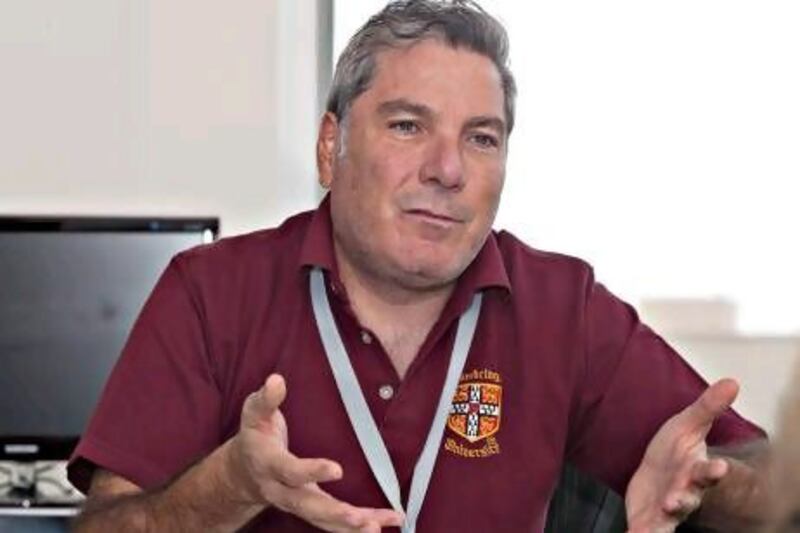DUBAI // Two universities are trying to address the country's lack of trained translators.
The Canadian University of Dubai (CUD) will launch a bachelor's degree in English language and translation this term. Until now, most translation degrees have been at postgraduate level.
And the American University of Dubai (AUD) is to open an Arabic language and translation institute this year and start offering a translation degree next year.
Between them, they will address what experts say are two key problems of translation in the UAE: that translation training is often an afterthought; and that translators' skills are not suited to the fields in which they end up working.
The head of department at CUD, Dr Kathy O'Sullivan, hopes an undergraduate degree will encourage students to consider the field as a career option.
"What happened in this country is that people would start to work as translators usually because they spoke the language," said Dr O'Sullivan.
Only later did they realise they needed training, she said.
The degree will focus on preparing students to work in fields such as law, engineering or media.
Students must reach an International English Language Testing System score of 6 - higher than the 5.5 score needed for federal university but lower than is needed for other schools, such as the American University of Sharjah, which requires 6.5.
Students will also be interviewed and submit written work to ensure their interpretation skills match their reading and writing.
"We want the students to have a high level of Arabic as much as we want them to be strong in English," said Dr O'Sullivan.
UAE-based students, even those of Arab origin, are often stronger in written English than Arabic.
She said many sectors, including health, lack trained translators.
"In the UAE, people often think of translation in terms of literature … but [that] doesn't mean you can translate a medical text," added Dr O'Sullivan.
The media, especially television, face a similar problem, said Ali Jaber, the dean of AUD's new college and the group director of television at MBC.
Across the region, 70,000 people work in television at more than 1,100 stations.
"When you translate blogs, Twitter, online material, it's different to translate classical works from a foreign language into Arabic," said Mr Jaber. "With the explosion of news channels and broadcasters in the Arab world, it's a necessity that the media outlets cover foreign stories, which requires the editors and the presenters to know a foreign language, or at least have some translations of the material they're exposed to."
Other jobs, such as dubbing, are in huge demand and require expertise, with Arabic channels increasingly showing series from countries including South Korea and Turkey.
"Writing is at the heart of everything to do with the media," said Mr Jaber. "You write an ad, a movie, blogs. It's stupid to graduate Arab journalists who can only read and write in English. It's completely pointless."
But such degrees have not always thrived. The American University of Sharjah (AUS) dropped its bachelor's course in English and Arabic translation in 2003 because of a lack of interest.
The head of Arabic and Translation Studies at AUS, Prof Ronak Husni, bemoans the low status of language degrees.
"Language is looked down upon," he said. "Men do engineering and women do subjects like law and international studies. For translation, students would rather go to study this in Europe."
The University of Sharjah has had more success with its master's degree in translation, with former students working in government departments, media and embassies.
The university's chair of English language and literature, Dr Abdul Sahib Ali, blames the decline of classical Arabic for the decline of degrees such as translation.
"People tend to use the colloquial, daily Arabic. Standard Arabic is rarely used these days," said Dr Ali.






